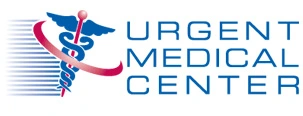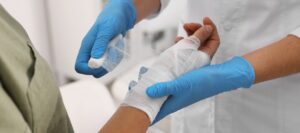Sometimes you get heartburn, like when you have pizza or tacos. Other times, it seems you have heartburn several times a week with no apparent food triggers. When your heartburn keeps coming back, it may be GERD, and if so, it’s probably time to discuss it with your doctor.
Heartburn
Heartburn, also called acid reflux and acid indigestion, presents with a burning sensation in the upper chest and throat area, that can include coughing, and even chest pain. While it often follows a meal comprised of certain foods, heartburn can be caused by obesity, stress, and medications. Knowing what triggers your heartburn can help you prevent it with diet changes, though sometimes medication is required.
GERD – Gastroesophageal Reflux Disease
Gastroesophageal Reflux Disease (GERD) is a condition which develops from acid reflux which if left untreated can lead to serious complications, even esophageal cancer. GERD is diagnosed when heartburn symptoms are present two more times per week. In addition to heartburn multiple times during the week, GERD is typically identified by regurgitation of stomach acid often with undigested food into your mouth, coughing, bad breath, a continual bitter taste, and even difficulty swallowing. GERD is most often diagnosed in middle aged adults or as a result of other medical conditions.
GERD Risk Factors
GERD has multiple risk factors including:
- Obesity. Any amount of extra weight in the abdominal area creates pressure on the stomach and the diaphragm, and causes weakening of the sphincter (the valve that keeps the contents of the stomach in the stomach) and permits stomach acid and undigested food to make its way back up to the esophagus.
- Pregnancy. Pregnancy puts additional pressure on the stomach, and increased progesterone levels loosen the sphincter.
- Smoking.
- Diabetes. Diabetes can cause gastroparesis in which the stomach doesn’t empty effectively.
- Hiatal Hernia. A hiatal hernia occurs when the stomach bulges through the diaphragm into the chest area, weakening the sphincter.
- Ulcers. Peptic ulcer can cause reflux, a result of food not moving effectively through the GI tract.
- Asthma. Reflux can occur as a result on coughing and pressure in the lungs. In addition, some asthma medication can loosen the sphincter.
GERD Diagnosis and Treatment
GERD is normally diagnosed based on a discussion of your symptoms and medical history along with a physical examination. Testing may be used to rule out other conditions. If your symptoms are severe, your doctor will likely order an Esophagogastroduodenoscopy (EGD) commonly called an upper endoscopy to determine the degree of inflammation or damage and perform biopsies if needed.
When GERD is diagnosed, there are a number of lifestyle changes and treatment options which can improve GERD and its symptoms including:
- Lose Weight. Losing weight can decrease pressure on your stomach to improve your symptoms.
- Avoid Certain Foods. Spicy foods, alcohol, fried foods, carbonated drinks, fatty foods, acidic foods often cause symptoms.
- Stop Smoking. Though research is ongoing, GERD patients who stop smoking experience a reduction in GERD symptoms.
- Don’t Lie Down After Eating.
- Prop up the Head of Your Bed.
- Take Medication. You doctor may recommend over-the-counter medication for fast relief (Gaviscon, Tums, Rolaids). If these medications fail to relieve symptoms, your doctor will likely prescribe an H2 Blocker (Zantac, Tagamet) or PPI (proton pump inhibitors) (Prilosec, Protonix). Take all medications as directed by your doctor.
In most cases, GERD will respond to these therapies. In any event, pay close attention to your symptoms and discuss any changes with your doctor.





